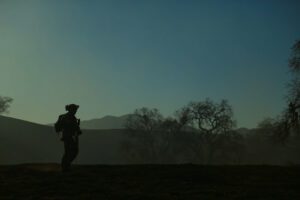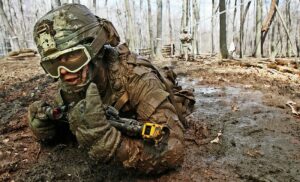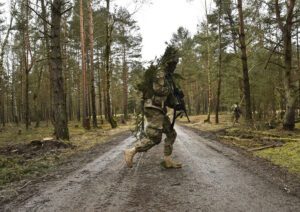Fear Fear!

The Memoirs of Ulysses S. Grant became an instant best-seller when they were first published in 1885-86, shortly after the President’s death from cancer. Many military leaders find his work invaluable because of the General’s honesty and transparency. For Grant does not embellish his stories to always make himself the hero or portray himself in a favorable light. He admits his shortcomings and failures.
Perhaps what readers appreciate most is Grant’s admission to fear and apprehension in the face of challenges. For instance, at the very beginning of his military career, Grant describes the fear he felt on his way to attend West Point.
“I really had no objection to going to West Point,” he wrote, “except that I had a very exalted idea of the requirements necessary to get through. I did not believe I possessed them, and could not bear the idea of failing.”
He went on to explain, “I would have been glad to have had a steamboat or railroad collision, or any other accident happen, by which I might have received a temporary injury sufficient to make me ineligible, for a time, to enter the academy. Nothing of the kind occurred, and I had to face the music.”
Later, as a cadet, Grant told of how Congress was debating a bill which would have closed the Military Academy at West Point. Though this bill alarmed most of the cadets, Grant saw in it a way of escaping his austere environment.

“Early in the session of the Congress which met in December, 1839, a bill was discussed abolishing the Military Academy. I saw in this an honorable way to obtain a discharge, and read the debates with much interest, but with impatience at the delay in taking action, for I was selfish enough to favor the bill. It never passed, and a year later, although the time hung drearily with me, I would have been sorry to have seen it succeed.”
Many years later, when Grant commanded a regiment in the early days of the Civil War, he described the fear he felt while ascending a hill to attack an enemy’s fortifications. As he approached the crest of the hill, his heart pounded so strongly he thought it would leap into his throat. He confessed, “I would have given anything then to have been back in Illinois” (at his father’s dry goods shop).
But as he reached the enemy’s camp – he found it deserted! The enemy had fled! “It occurred to me,” Grant explained, “that the enemy had been as much afraid of me as I had been of him. This was a view of the question I had never taken before; but it was one I never forgot afterwards. From that event to the close of the war, … I never forgot that the enemy had as much reason to fear my forces as I had his. The lesson was valuable.”
Yes, Grant was a man who struggled with fear and the desire to escape unpleasant situations. But he got a handle on those negative emotions and did not let them control him. By doing so General Grant would go on to preserve the Union and save the United States. But can you imagine what would have become of U.S. Grant if he had shrunk in fear from his challenges?
I think we can imagine it. For I thought about Grant when reading the first chapter of Deuteronomy this morning. In this biblical passage Moses recounts the story of how God brought Israel to the threshold of the Promised Land (vv.19-40). God commanded His people to go into Canaan and take possession of the land. But when they learned of the challenges that awaited them there, they chickened out. They rebelled against God and accused Him of hating them. At a critical moment, Israel forgot all of God’s promises and all the miracles He had performed on their behalf against the Egyptians.
Israel’s cowardice and unbelief cost them the Promised Land. God condemned that older generation to wander in the desert for forty years, until they all perished. Their children would obey God, enter the land, and experience the victory their fathers would never know.

U.S. Grant and faithless Israel. Both dealt with fear in the face of challenges. But one mastered those fears, faced his challenges, and accomplished God’s purpose for his life. The other surrendered to fear and self-destructed. If we think exercising faith in God, controlling our fears, and facing life’s challenges is risky, we need to ponder these examples. Fear is what we should fear, not the challenges. There’s a future for the one who trusts in and obeys God. But the one who allows fear to rule their decisions has no future. Fear is dangerous and deadly.
God would say to Moses’ successor, Joshua, “Be strong and courageous! Do not tremble or be dismayed. For the LORD your God is with you wherever you go” (Joshua 1:9).
Do you struggle with fear? So does everyone else, but courage is not the absence of fear. Courage is the mastery of fear. So, despite those fears that hound you, trust God and courageously follow the Lord Jesus Christ. There is no other sane course of action to take.
PRAYER: Dear Father in heaven, please open my eyes to see the necessity of conquering my fears, trusting in Your promises, and facing my challenges. Help me to understand that there are no other sane options besides trusting and obeying You. Help me, then, Father to take You hand, trust in Your word, dismiss my fears, and follow You. In Jesus’ name, Amen.
(Quotations from: Grant, Ulysses S., Personal Memoirs of U. S. Grant, Da Capo Press, New York, 1982, pp.11-13, 15, 126-127)







